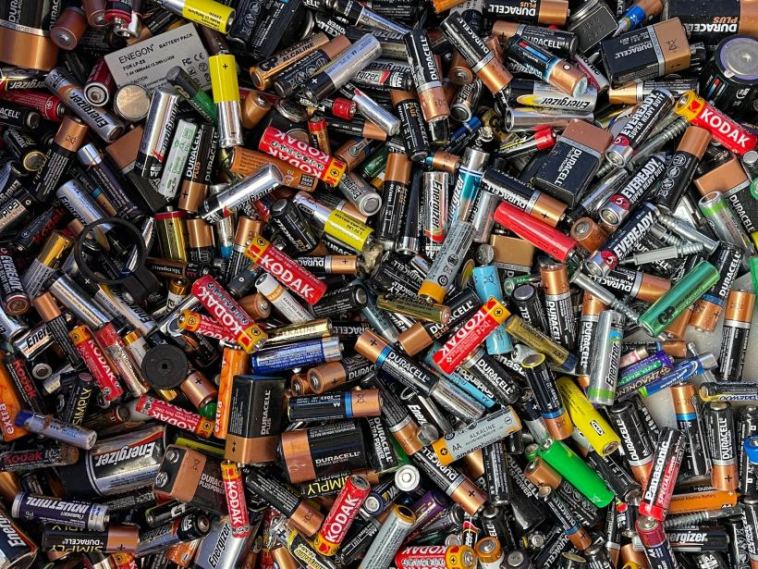- Like
- SHARE
- Digg
- Del
- Tumblr
- VKontakte
- Flattr
- Buffer
- Love This
- Save
- Odnoklassniki
- Meneame
- Blogger
- Amazon
- Yahoo Mail
- Gmail
- AOL
- Newsvine
- HackerNews
- Evernote
- MySpace
- Mail.ru
- Viadeo
- Line
- Comments
- Yummly
- SMS
- Viber
- Telegram
- JOIN
- Skype
- Facebook Messenger
- Kakao
- LiveJournal
- Yammer
- Edgar
- Fintel
- Mix
- Instapaper
- Copy Link
Introduction
Most electronics and appliances used to be significant investments, with many of them lasting several years, sometimes decades, before they break down and eventually end up in a landfill.
However, as electronics became more of a necessity, manufacturers also found ways to maximize profit through planned obsolescence. This is a strategy where manufacturers intentionally create products that become unusable or irreparable in a shorter period to ensure more sales.
This has resulted in a global electronic waste or e-waste problem, with Canada being one of the world’s biggest offenders.
What Is E-Waste?
Electronic waste, or e-waste, consists of different electronic or electric equipment that are no longer functional or useful. E-waste includes laptops, computers, smart devices, cables, batteries, and other electronics.
Due to their components, e-waste requires particular disposal and recycling methods. They often contain chemicals, such as mercury, arsenic, and lead that could be toxic to human health and the environment.
How To Recycle E-Waste
E-waste should not be thrown in with other types of garbage, as they often contain toxins that could contaminate landfills. Below are three ways in which you could dispose of unusable electronics in your home or business:
1. Donate or Resell
Before chucking anything into the bin, check if the electronics you plan to dispose of are still working. If the items still are operable, it might be best to resell or donate them instead of throwing them out.
Being a mindful consumer means getting the most out of buying things. If you can’t find any more use for your electronics, it’s better to find people or organizations that need them.
This practice will also save other people the resources and effort of finding usable electronics that they need.
2. Establish an E-Waste Recycling Policy
Electronics are often necessary for many businesses. Computers, smart devices, and other special equipment are now indispensable to keep up with modern standards across different industries.
If you manage a large organization, setting an e-waste recycling policy for your workplace might be good. It allows you to monitor the e-waste you generate and take specific steps to minimize it.
You could partner with an e-waste recycling facility to help with your efforts, especially since recycling e-waste requires specialized resources.
Aside from minimizing your company’s carbon footprint, being environmentally conscious also builds credibility, especially among concerned consumers.
3. Look Into Local Recycling Facilities
It’s challenging to recycle e-waste on an individual level, especially since most e-waste could harm the environment or even your health if improperly handled. For this reason, it’s best to look into recycling facilities near you.
For example, if you have a broken laptop, you can find facilities that offer laptop recycling in Toronto. The city also hosts Community Environment Days to help reduce the amount of waste that goes to landfills.
Why Recycle E-Waste?
Climate change presents a genuine threat, and recycling waste is one practice that could help mitigate its effects. Recycling converts waste into materials we could reuse to avoid generating more waste.
Below are three key reasons why recycling e-waste is necessary:
1. Saves Landfill Space
Most of the world’s waste ends up in landfills, which release harmful fumes, chemicals, and greenhouse gases into the environment. Recycling e-waste helps divert these materials from ending up in landfills or incinerators.
2. Prevents Toxic Hazards
Properly recycling e-waste helps prevent toxins like mercury and lead from seeping into our air, soil, and water. These pollutants pose several health risks to people, animals, and plants that become exposed to them.
3. Reuse of Resources
Electronics are often made up of several small parts that could still be repaired or reused for other purposes. Reusing these materials helps reduce manufacturing costs and speed up production times.
The Takeaway
The large volume of e-waste being produced is a cause for concern, primarily as it affects the environment and public health. Making e-waste recycling a community priority could help slow down these adverse effects and lead us toward a more climate-conscious future.


